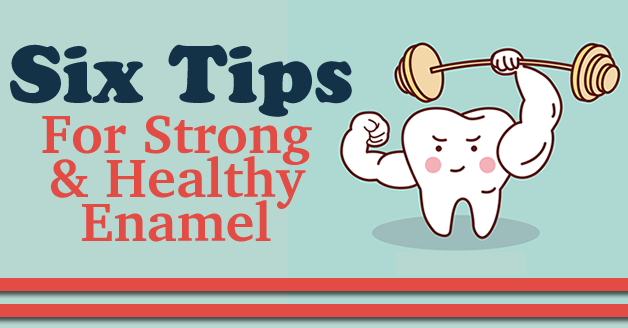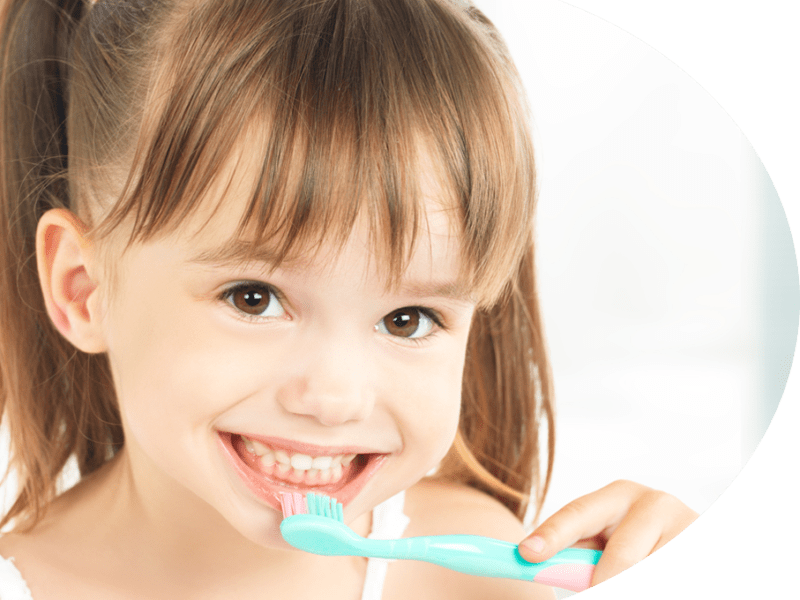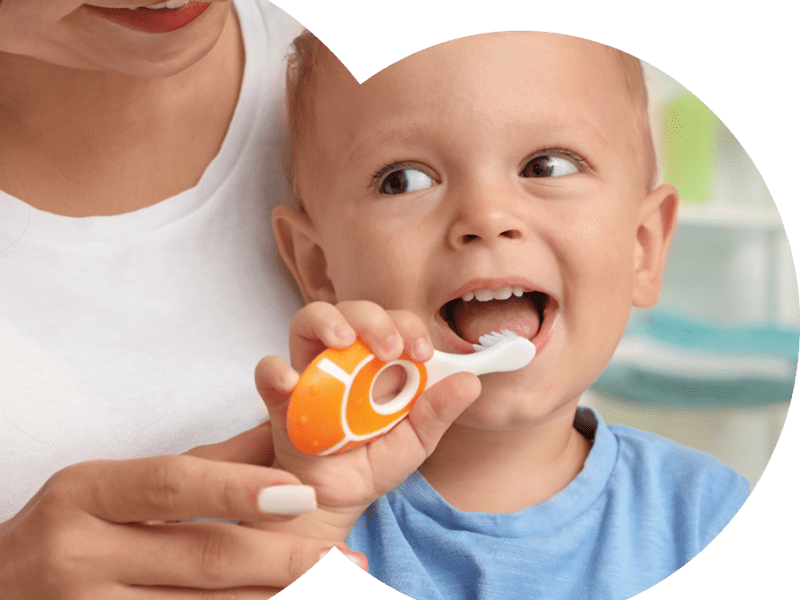Enamel – It’s a tooth’s first line of defense against cavities, decay and plaque. The hardest part of the human body, enamel is the bullet-proof vest that teeth wear to defend against erosion. Acids in the food we consume, and naturally produced by the bacteria that live in our mouth, are the number one enemy of healthy teeth. That thin white outer coating of enamel, though almost as hard as diamonds, is precious and must be protected. So how can you ensure that your child’s enamel will remain strong throughout their baby-teeth years, and help develop healthy habits your child will take into adulthood?
1. Brush Twice and Floss Once Daily
Twice A Day. Make it a mantra! If you’re not encouraging your child to develop a regular schedule of brushing and flossing, you’re putting healthy enamel at risk. The food we eat gets caught in the nooks and crannies of our mouth. This debris encourages bacterial growth, which leads to acid decay. It’s so important to brush twice per day, for two minutes at a time, and floss once per day, to clean all those the hard-to-reach places. Younger children need your help – set a great example by brushing and flossing with them, and lend a hand to ensure a comprehensive cleaning. Brushing twice daily, and flossing once daily, not only benefits enamel; it also leads to fresh breath, reduced plaque build-up and fewer cavities!
2. Rinse, Swish, Spit – A Great After Meal Routine
While brushing and flossing is your first line of defense, a simple rinse, swish and spit after every meal is a great way to remove food particles from your child’s mouth. Have your child take a nice gulp of clean water and swish it around for 30 seconds, then give a hearty spit into the sink. This will dislodge all the larger particles that would normally sit on teeth throughout the day in-between brushing. This small step can make a big difference in the long term health of your child’s smile.
3. Avoid Sugary Foods and Drinks
I know, we repeat this message often, but it’s super important! Sugar feeds the bacteria on your teeth, causing plaque and ultimately cavities. Limiting the of sugary foods and drinks your child consumes is good on so many levels. Making smart choices for your child’s snacking is not only about oral hygiene, but general health and wellness. Swap candies and sodas for fruits and veggies, but do be aware that many fruits are high in natural sugars, so brush, floss, rinse, swish, spit… Keep up the routine – every little bit helps.
4. Limit Citrus
While delicious and healthy, citrus fruits contain a high amount of citric acid – a big factor in enamel erosion and demineralization. Citric Acid can work its way through enamel to the soft dentin layer, which is very susceptible to acid erosion. This can lead to pain and sensitivity, as well as increased occurrence of cavities. If your child is consuming citrus, because let’s face it, oranges are delicious and healthy, do the rinse / swish / spit after the snack to wash away some of the acid residue.
5. Calcium For The Win!
Calcium is the superhero mineral that keeps teeth strong and healthy. Now for a little bit of science! Calcium is a bass – it neutralizes acid, removing the harmful effects of enamel and dentin erosion. Adding at least one dairy product to each of your child’s meals will provide them with adequate amount of calcium. If your child is lactose intolerant, there are other calcium-rich foods you can try: almond milk, canned fish, kale, soy yogurt and soy beans are all good examples. Calcium supplements are also good, but we always recommend getting your vitamins and minerals from natural food sources first. A supplement should only bolster the intake of the naturally occurring vitamins and minerals found in a balanced, healthy diet.
6. Use Fluoridated Toothpaste
Fluoride strengthens enamel through a process called remineralization. When choosing fluoridated toothpaste for your child, make sure that it has the ADA seal of approval to ensure that it has been rigorously tested and approved.
Visit BD4K!
Visit our office so that we can evaluate your child’s overall oral health. We check and document the state of your child’s tooth enamel as a part of our regular checkups, and we will help give you and your child the knowledge necessary to keep a healthy, lifelong smile.



